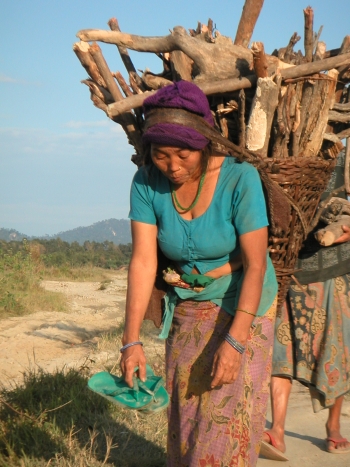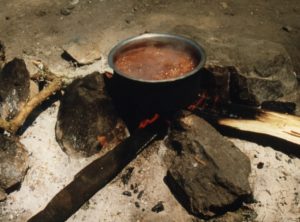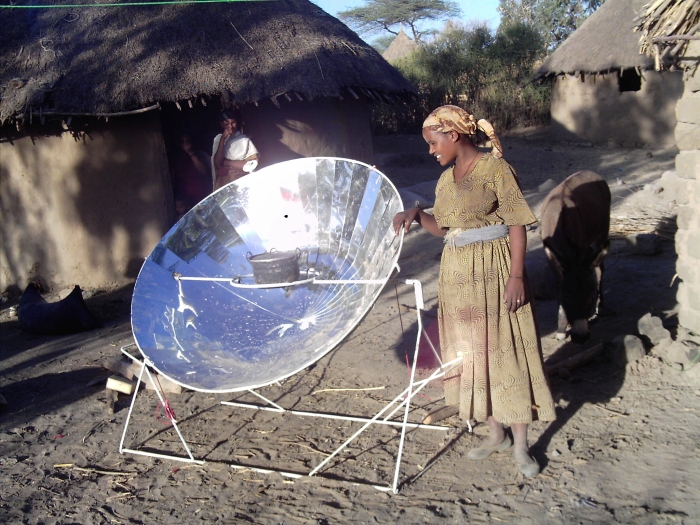We cook with the sun

Since the end of the 1970s students and teachers of the ⇒Vocational School Altötting have successfully been involved in diverse aid projects in Peru, Tansania and Togo. Thereby they have become aware of the complex of problems caused by the crisis of fuelwood with all its detrimental effects on humans and environment. To meet these increasing problems they were happy to adopt the parabolic solar cooker developed by Dr. Dieter Seifert and integrate it into the developing aid activities.
In consequence EG Solar e.V. was set up in 1993 as a non-profit registered association. EG Solar actually has 160 members worldwide.
In 1993 „EG Solar“ was set up as a registered charitable organisation. In more than 80 countries worldwide our solar cookers have already proved their worth and efficiency. In collaboration with students of our Industrial School Altötting and on the basis of suggestions made by users all over the world the models have been improved constantly while
feedback from many regions of the world, reports and photos of solar energy applications under various climatic and cultural conditions help us.
Why is the spread of solar cooking so important?

„Grilling is a fine thing – on a balmy evening with friends. This is no pleasure for 2.5 billion people in developing countries. They must always prepare their meals on open fire or inefficient stoves. The biting smoke irritates the airways, people cough, their eyes tear. The World Health Organization estimates that 1.6 million people die of toxic smoke annually, including 800,000 children and 600,000 women. So cooking kills more people than malaria.“ Greenpeace magazine 6.11
The traditional cooking with firewood or charcoal is problematic
- Three billion people worldwide depend on firewood or charcoal to cook.
- The secondary growth of wood can not keep up with the consumption.
- The consequences of deforestation are dramatic: treeless steppes, soil erosion, sinking of the groundwater level, impoverishment of soils, desertification, rural exodus ..
- High CO2 emissions and soot damage the climate.
- Women and children must always take additional steps for firewood collection.
Landmines are often a high risk. - The increasing fuel shortage leads to horrendous prices for fuels.
- Toxic smoke and soot from traditional cooking places damage the eyes, lungs and airways.

The use of suitable solar cookers
- obtains the tree population (successful reforestation is possible, livestock manure is not burned but used as fertilizer, CO2 is reduced)
- promotes health, especially for women and children: – Cooking in clean air (no smoke, no harmful gases)
– Promote hygiene by boiling water
– Preservation of food and sterilization of medical devices
– Avoiding burns at the open cooking area
– Avoiding kerosene poisoning or fire - Relieves women and children from the time-consuming collection of wood. Children find time to attend school, women work.
- provides enormous time and money savings in the long term
- creates jobs in the field, thus becoming affordable for local people.
- for commercial purposes such as tea and food stoves, coffee roasting, dyeing, braiding is possible.
- Improves overall living conditions in the countryside and prevents from rural exodus.
